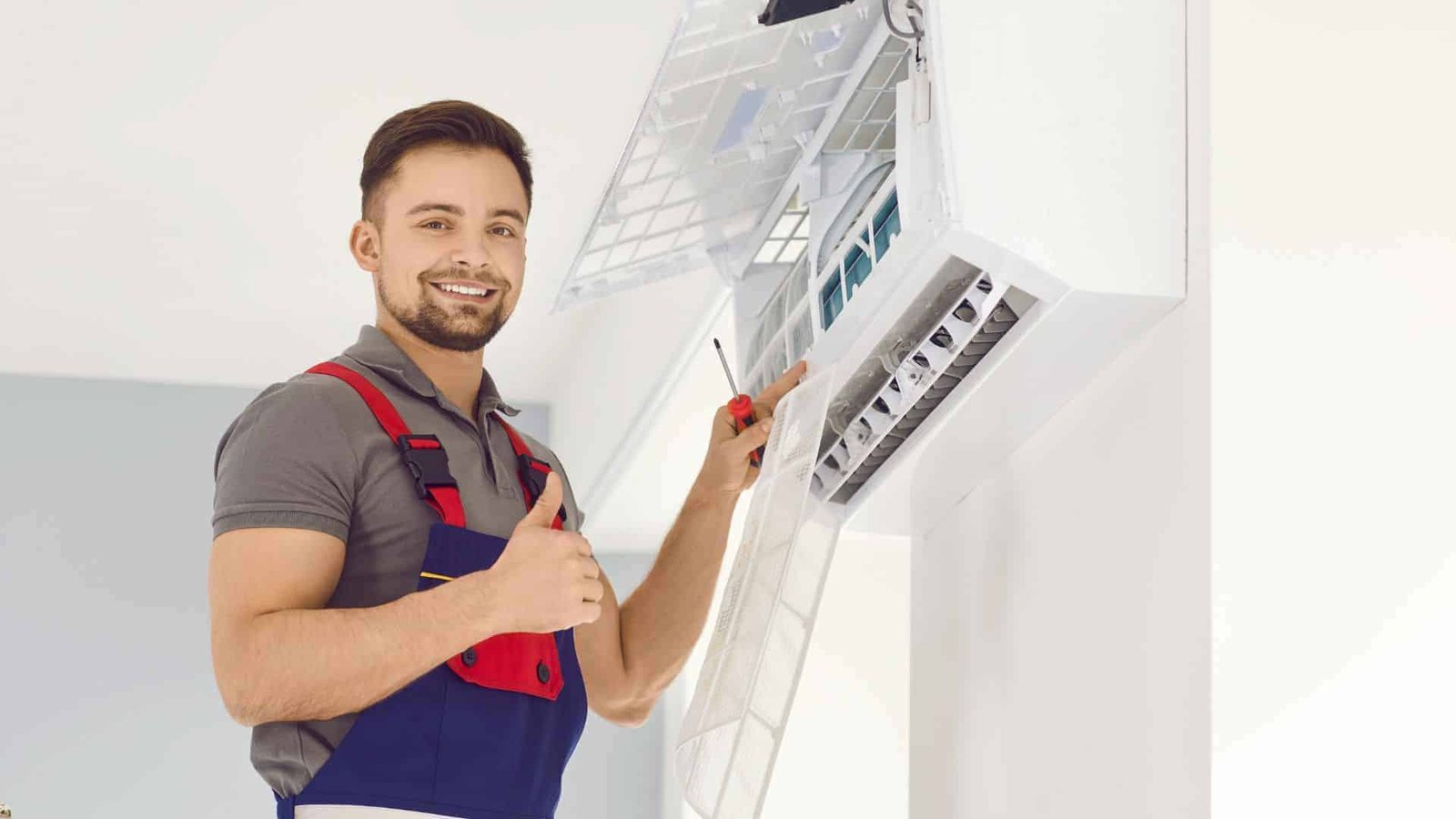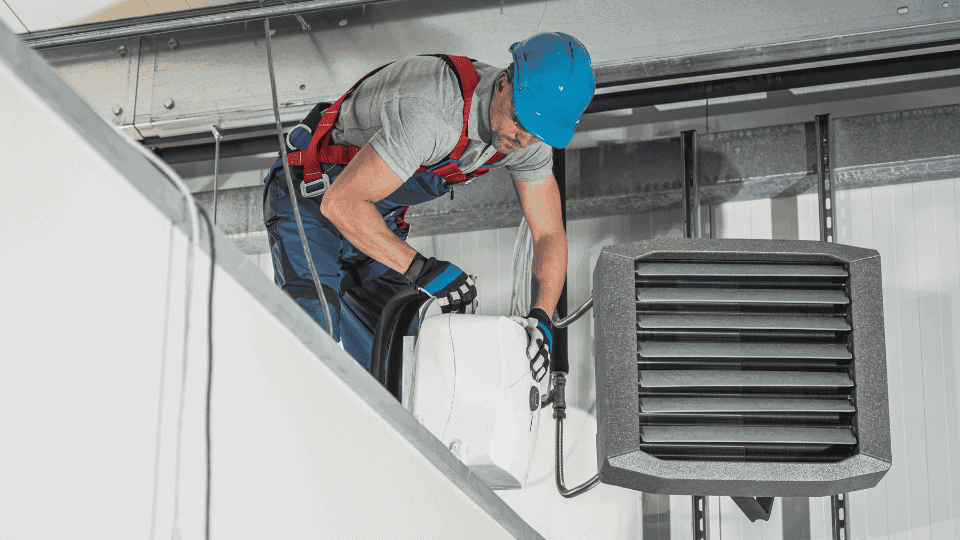Your HVAC system is crucial for maintaining a comfortable environment, but it can run into issues over time. From strange noises to inconsistent temperatures, knowing how to address common HVAC problems can save you from costly repairs and ensure your system runs efficiently. In this blog, we’ll explore typical HVAC issues you might encounter and offer practical solutions to tackle them. Whether you’re dealing with a malfunctioning thermostat or clogged filters, we’ll provide insights and tips to help you keep your system in top shape. Let’s dive into the common problems and find out how to solve them effectively.
Identifying Strange Noises and Their Causes

Strange noises from your HVAC system can be alarming and may indicate underlying problems. Rattling sounds might suggest that internal components like screws or panels are loose, while banging noises could be caused by an expanding duct or an issue with the fan. Squealing noises often point to a worn-out belt or motor bearings. Additionally, humming noises may indicate electrical issues or a problem with the motor.
Identifying the source of these noises is crucial for timely repairs. Addressing these issues early can prevent more significant damage and ensure your system operates efficiently, keeping your home comfortable and your energy bills in check.
Troubleshooting Temperature Inconsistencies
Temperature inconsistencies in your home can disrupt comfort and hint at HVAC system problems. Uneven temperatures might be due to incorrect thermostat settings, which can lead to certain rooms being too hot or cold. Blocked or closed vents can also cause airflow imbalances, resulting in inconsistent heating or cooling. Problems with ductwork, such as leaks or improper insulation, can further exacerbate these issues.
To troubleshoot, first check and adjust your thermostat settings for accuracy. Ensure all vents are open and unobstructed. Finally, inspect ductwork for any visible leaks or damage. Addressing these factors can help achieve a more balanced and comfortable indoor environment.
Fixing HVAC System Short Cycling Issues
Short cycling is a common HVAC issue where the system turns on and off frequently, causing inefficiency and potential damage. This problem can stem from various sources, such as a malfunctioning thermostat that misreads temperatures or an oversized unit that heats or cools too quickly. Dirty or clogged air filters can also cause the system to short cycle by restricting airflow.
To address this issue, start by checking and adjusting the thermostat settings to ensure they are accurate. Replace any dirty filters and ensure they are the correct size. Additionally, verify that your HVAC system is appropriately sized for your home to avoid frequent cycling and extend its lifespan.
Solutions for Clogged Filters and Blocked Vents
Proper airflow is essential for an efficient HVAC system. Clogged filters and blocked vents can cause significant problems, including reduced system performance and higher energy bills. Addressing these issues promptly will ensure your system operates smoothly and your home stays comfortable.
- Regularly Replace Filters: Dirty filters obstruct airflow, forcing your HVAC system to work harder. Replace filters every 1-3 months to maintain optimal performance and indoor air quality.
- Clean or Replace Filters as Needed: If you notice reduced airflow or increased dust, it may be time to clean or replace your filters. Regular maintenance prevents system strain and extends the life of your equipment.
- Check for Blockages: Inspect vents for any obstructions such as furniture, curtains, or dust buildup. Ensure that all vents are clear to promote even airflow throughout your home.
- Inspect and Clean Ductwork: Dust and debris can accumulate in ductwork, impacting airflow. Schedule professional duct cleaning to remove buildup and improve system efficiency.
- Use High-Quality Filters: Opt for high-efficiency filters that trap more particles and last longer. They can improve air quality and reduce the frequency of replacements.
In conclusion, maintaining clean filters and unobstructed vents is crucial for the efficiency and longevity of your HVAC system. Regular inspections and replacements can prevent common issues and ensure a comfortable living environment.
Handling Refrigerant Leaks and Low Levels

Refrigerant is vital for the cooling process in your HVAC system. Leaks or low levels can drastically affect your system’s performance and efficiency. Addressing refrigerant issues promptly is crucial to maintaining a comfortable home environment.
- Identify Signs of Leaks: Look for signs such as ice formation on the evaporator coil or insufficient cooling. These can indicate refrigerant leaks that need immediate attention.
- Check Refrigerant Levels: Low refrigerant levels can result in reduced cooling efficiency. Have a professional check and recharge your refrigerant to ensure your system operates at peak performance.
- Repair Leaks Promptly: If a leak is detected, it should be repaired by a qualified technician. Leaking refrigerant can cause environmental harm and system damage if not addressed quickly.
- Inspect Refrigerant Lines: Regularly inspect refrigerant lines for signs of wear or damage. Proper maintenance can help prevent leaks and ensure efficient operation.
- Consider System Upgrades: If your system frequently has refrigerant issues, it may be time for an upgrade. Newer models often use more efficient refrigerants and are designed to minimize leaks.
In conclusion, properly managing refrigerant levels and addressing leaks is essential for your HVAC system’s efficiency and longevity. Regular inspections and timely repairs can help maintain optimal performance and keep your home comfortable.
Understanding and Resolving Poor Airflow
Poor airflow in your HVAC system can lead to uneven temperatures, reduced comfort, and higher energy bills. Common causes of poor airflow include blocked or closed vents, dirty air filters, and issues with the blower motor. Blocked vents can obstruct the flow of air, causing some rooms to be colder or warmer than others. Dirty filters restrict airflow, forcing the system to work harder.
A malfunctioning blower motor may also affect airflow efficiency. To resolve these issues, regularly clean or replace air filters and ensure vents are open and unobstructed. Check the blower motor for proper operation. Improving airflow can enhance system efficiency and comfort throughout your home.
Addressing Frequent System Cycling Problems
Frequent system cycling, where your HVAC unit turns on and off too often, can strain the system and lead to higher energy costs. This issue may arise from an incorrectly set thermostat, which can cause the system to overwork. Faulty wiring or connections might also lead to erratic cycling patterns. Additionally, if the system is improperly sized for your home, it may not operate efficiently. To address frequent cycling, recalibrate or replace the thermostat to ensure accurate temperature readings. Inspect and repair any faulty wiring or connections. Ensure your HVAC system is correctly sized and installed to prevent excessive cycling and maintain efficient operation.
Diagnosing and Repairing Thermostat Issues
A malfunctioning thermostat can significantly impact your HVAC system’s performance and comfort levels in your home. Common thermostat issues include incorrect temperature readings, unresponsive controls, or faulty wiring connections. If your thermostat is not accurately reflecting the room temperature, it can cause the system to run inefficiently or not at all.
Unresponsive controls may prevent you from adjusting settings properly. Diagnosing these problems involves checking the thermostat calibration, ensuring proper wiring connections, and replacing any faulty components. In some cases, upgrading to a programmable or smart thermostat can improve efficiency by allowing for more precise temperature control and better energy management.
Conclusion
In summary, understanding and addressing common HVAC service problems, such as strange noises, temperature inconsistencies, and refrigerant leaks, can greatly enhance your system’s performance and longevity. Regular maintenance, including checking filters, vents, and refrigerant levels, is key to preventing issues and ensuring a comfortable home environment. By staying proactive, you can avoid costly repairs and enjoy efficient heating and cooling all year round.
For expert assistance with your HVAC system, contact Air Repair at +1 (647) 330-2979 or visit us at 19 Maple Grove Ave, Richmond Hill, ON L4E2T9. Our team of professionals is here to help with all your HVAC needs and keep your system running smoothly. Don’t hesitate to reach out for reliable service and solutions.

